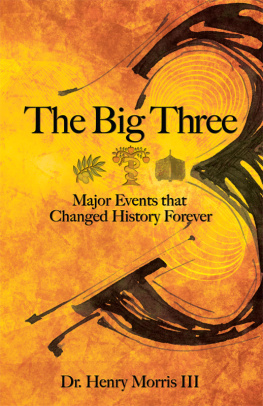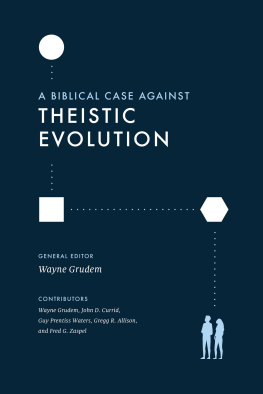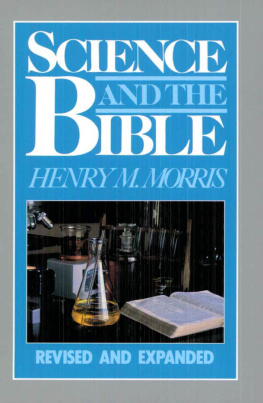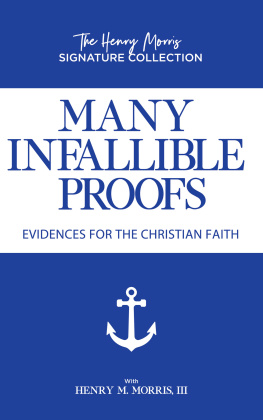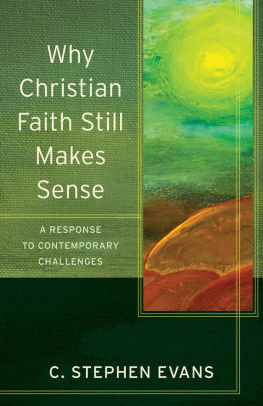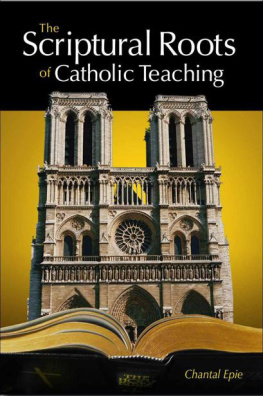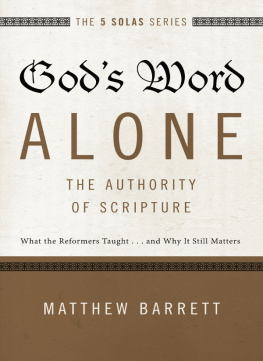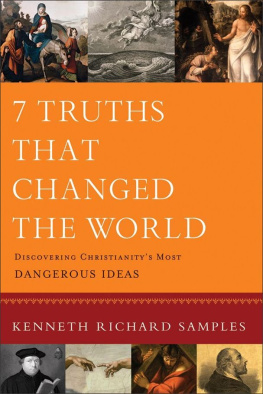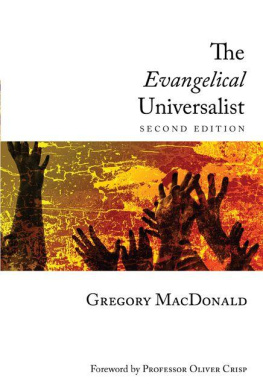The Big Three
Copyright Information
First printing: March 2009
Copyright 2009 by Henry Morris III. All rights reserved. No part of this book may be used or reproduced in any manner whatsoever without written permission of the publisher, except in the case of brief quotations in articles and reviews. For information write:
Master Books, P.O. Box 726, Green Forest, AR 72638.
ISBN13: 9780890515624
ISBN10: 089051562X
Library of Congress Catalog Number: 2009901765
All Scripture quotations in this book, unless otherwise noted, are from the King James Version of the Bible.
Please visit our website for other great titles:
www.masterbooks.net
For information regarding author interviews, please contact the publicity department at (870) 4385288.
Acknowledgments
Having a great heritage is a priceless gift. I am honored to bear the name of Henry M. Morris and to have sat at my father's feet as the eldest son, a colleague, and a friend. Much of what I have embraced in my own ministry comes indirectly from his legacy. My brother, Dr. John Morris, and I have spent many years of fellowship and ministry together. John is a wellknown author and explorer in his own right, and we have shared the passion of our earthly father for the work of ICR. I am grateful for John's feedback and insights, especially during the compiling of the initial effort for this book. Dr. Gary Parker was also instrumental with his succinct and straightforward communication style in bringing the first edition to fruition.
Dr. Eugene Merrill, whose textbook I used in undergraduate school, was most gracious with his foreword and in his encouragement to maintain a commitment to the authority of God's inspired Word. I am thankful for his ongoing comfort and growing friendship during our association at the great historic church of First Baptist Dallas.
Although built upon the foundation of After Eden, with a good portion of the earlier material retained, I have adapted the gracious feedback suggestions from around the world, and have added and clarified issues that have been on my heart for some time. All of those several and sometime independent insights have come to fruition during these few years as I have been privileged to assume the role of chief executive officer for the Institute for Creation Research. Sometimes viewing the ministry as a whole gives new impetus to the need and the urgency of the mission.
Jan, my dear wife of nearly 45 years, has shared my struggles, labored with me in prayer, and patiently encouraged me during the more challenging times. She says that's "just her job," but I know better. Many friends have prayed with us that God would use the message of this book for His glory. We all await His answer.
Contents
Foreword
No child spawned by the 18th century Enlightenment has so effectively infused and indeed, shaped modern life and thought as naturalistic evolutionism. Best known, perhaps, as the guiding principle of the life sciences, the evolutionary hypothesis has also become the framework within which virtually every other modern area of thought is understood and articulated, including the study of religion.
While it is lamentable, it should not be surprising that the "natural man," as Paul describes him (1 Cor. 2:14), has embraced the evolutionary worldview, for with the rejection of the God of the Bible as the sufficient and efficient cause of all things, the most appealing and selfconsistent alternative is the evolutionary model. Granting its fundamental presuppositional premises, this model seems better able to explain origins, processes, and results than any other. But it is the granting of these premises that is the sticking point, or at least it ought to be for the Christian who claims to base his epistemological as well as spiritual authority on the Bible, the inerrant and infallible Word of God. The reason for the current dilemma is clear: naturalistic evolutionism and biblical revelation, when both are clearly understood, are essentially contradictory and mutually exclusive.
One might relegate the whole issue of biblical creationism to a marginal area of discussion among those who have special interest in such details were it not for the fact that the biblical message itself is rooted and grounded in a theology of creation. God's purpose for the universe in general and more specifically for the human race finds its source in texts that speak of creation as a divine act occurring once, at one moment, and in full development (Gen. 1:12:3). No straightforward literary, grammatical, and cultural hermeneutic can yield any other conclusion than that the creation narratives present God as Creator of all things, who, by the spoken Word, brought them into existence fully mature. The message of the gospel is that Christ came to restore humankind and, indeed the whole universe to its pristine preFall condition, and the eschatological hope of the world is that it will be recreated to the perfection that God brought to pass in its original state. The recreation will be instantaneous not the product of eons of development and thus will match, in short, the first creation as bookends on both sides of history. A sound view of creation, then, is essential to a sound biblical theology.
Because of the apparently irrefutable case made by modern science for the evolutionary hypothesis, many wellintentioned Christians who want to be intellectually respectable and yet hold fast to biblical authority find themselves in a quandary. How can they be true to the text and yet not be marginalized in a culture that understands all reality in evolutionary terms? The answer all too often has been to resort to the expedient of what Morris in this work describes as a "hybrid" evolutionism, an accommodation to the perceived scientific data that is variously described as "theistic evolution," the "gap hypothesis," the "long day" theory, the "dayage" view, "intelligent design," and "progressive creationism," among others. There can be no doubt that those who adopt such models do so as devout and sincere brothers and sisters in Christ. But are such compromises necessary or more bluntly are they appropriate? Can an ordinary hermeneutic that takes the text at face value not be satisfying to both science and theology when both are methodologically sound and when both bow in humble reverence before the God of the Word and of the world? I think so. This book makes this case and in language and a spirit that are winsome and wise.
Eugene Merrill, Ph.D.
Distinguished Professor of Old Testament Studies
Dallas Theological Seminary
Preface
Where Is Truth?
Some today disdain the "old farmer" who has been quoted as saying, "God said it. I believe it. That settles it." It appears that it has become pass to base our faith solely on the Word of God or to trust explicitly in the clear, simple words of the written text. We must, many seem to demand, have evidential proof of the accuracy and authenticity of the Scriptures before we feel that "others" will accept our faith.
Perhaps the evangelical Church needs reminding how emphatic is the demand for total allegiance and submission to the authority of God's Word in God's Word. And perhaps the Church has forgotten the intense prohibition and terrible consequences to those who would take it upon themselves to alter the Word of God.
What went wrong? "Old timers" in the Church can tell you about a time when school boards and city councils would NOT want to offend a local group of pastors. It was not the pastors' academic degrees, rhetorical skills, financial clout, or threats of lawsuits that earned their respect. Instead, the pastors brought the Bible to bear on the human condition, and the clear and compelling Word of God was their source of respect and authority.

